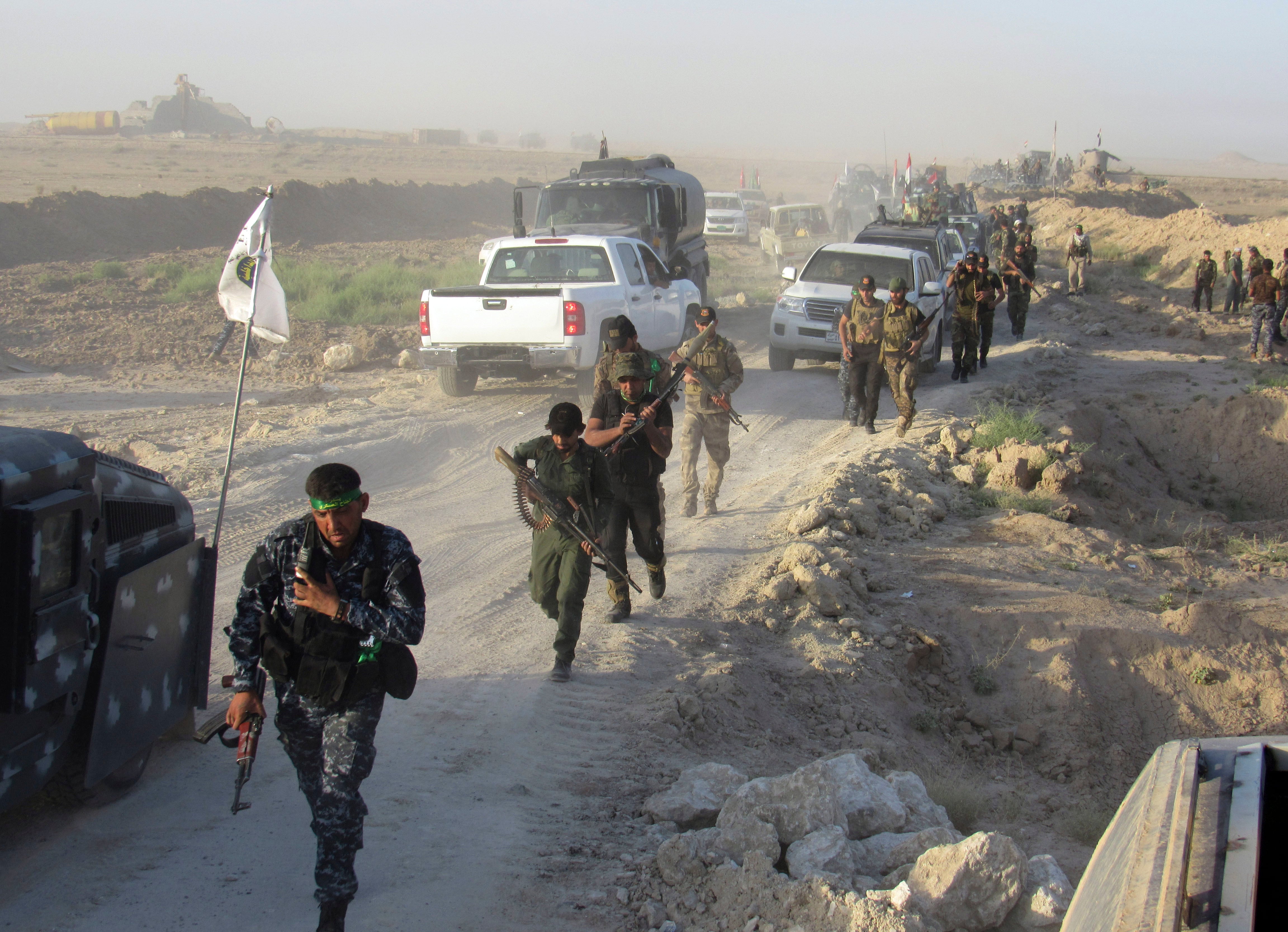Pentagon officials say the U.S. is unlikely to deploy ground-level American combat advisoers to support the Iraqi Army’s new operation to oust Islamic State militants from Fallujah.
Yet the U.S. military will continue to provide airstrikes for the Iraqi troops moving into Fallujah despite the large presence of Iranian-backed Shiite militias that are arrayed around the strategically important Sunni Arab city, a defense official said.
Iraqi Prime Minister Haider al-Abadi announced Sunday the start of military operations to retake Fallujah, which has been under control of the Islamic State group, also known as ISIS or ISIL, for more than two years.
For months U.S. officials have urged the Iraqis to prioritize retaking Mosul in northern Iraq, but a spate of new ISIS terrorist attacks in Baghdad prompted the Iraqi government to shift its focus to the ISIS stronghold just 40 miles west of the capital. It's likely ISIS is using Fallujah as a staging area for the attacks on Baghdad.
"This is going to be an Iraqi-led effort and they will determine the pace and the sequencing of events going in there. And we'll be in support of them in doing that," Navy Capt. Jeff Davis, a Pentagon spokesman, said Monday.
"Fallujah is important. It is the last remaining [Islamic State] stronghold within Anbar Province. It is the ISIL position that is closest to Baghdad. And it's a place that we're going to be working very closely to support our Iraqi partners in retaking."
But despite that signal of support, Davis said Defense Secretary Ash Carter's recent offer to expand the American advise-and-assist mission in northern Iraq probably does not apply to Fallujah.

Iraqi security forces and allied Shiite Popular Mobilization Forces and Sunni tribal fighters, take combat positions outside Fallujah on May 23, 2016. Iraqi government forces on Monday pushed Islamic State militants out of some agricultural areas outside Fallujah as they launched a military offensive to recapture the city from the extremists, officials said.
Photo Credit: Rwa Faisal/AP
In April, Carter authorized deployment of American troops to advise Iraqi commanders at the brigade and battalion level. It marked a big policy change after almost two years of restricting those U.S. advisers to Iraqi division headquarters. The change reflects Mosul's location more than 250 miles north of Baghdad, Davis said.
"Going north to Mosul, you were going to be farther and farther away from divisional headquarters. So in order for us to have geographical proximity to the action on the ground, we need to embed at a lower level," Davis said.
"That is not so much the case in western Anbar Province where you have divisional headquarters right there. So I wouldn't necessarily expect [an expanded combat advise-and-assist mission] to manifest itself in a place like Fallujah," Davis said.
However, Davis said, the American's standing offer to provide UH-64 Apache attack helicopters may extend to Fallujah if the Iraqis lodge a formal request, Davis said.
"We have in the past made clear to the Iraqis that that is a capability that we have available to employ, should they choose to employ them," Davis said. "We've made the offer to use those going forward as they see fit. Thus far they have not asked for them."
One factor that complicates the U.S. effort to support Iraqis in Fallujah is the presence of thousands of Shiite militiamen, many of them loyal to Iran rather than the government in Baghdad.
Top Pentagon officials have voiced opposition to coordinating with Shiite militias, which are essentially the same groups that were killing U.S. troops in Iraq a decade ago.
Those militias, also known as the Popular Mobilization Forces, or PMF, were not involved in the Iraqi's operation in Ramadi in December and January.
"There are PMF forces that are also massed on the north side of [Falluja], can't speak to what their role will be," Davis said Monday.
Davis acknowledged that "many of them are iIran-backed" but for now the U.S. and Iranian proxies share the same military objective.
"As much as ISIS is concerned, we have mutual overlapping interests in defeating ISIL. While we don't work with them directly, we recognize that we have a commonality of interests there," Davis said.
In the past, top military officials have said the U.S. will work with the Shiite militias that are under the operational command and control of the Iraqi government, but not those that take their orders from Iran. In 2015, the U.S. refused to provide air support for PMF operations in Tikrit and resumed air strikes on ISIS targets in that city only after the Shiite militias withdrew.
In Fallujah, the U.S. military will work "with and through the government of Iraq," Davis said.
Andrew Tilghman is the executive editor for Military Times. He is a former Military Times Pentagon reporter and served as a Middle East correspondent for the Stars and Stripes. Before covering the military, he worked as a reporter for the Houston Chronicle in Texas, the Albany Times Union in New York and The Associated Press in Milwaukee.



